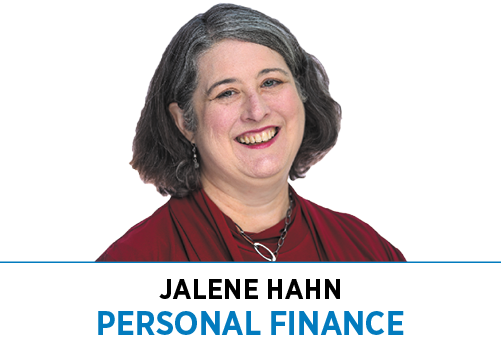Subscriber Benefit
As a subscriber you can listen to articles at work, in the car, or while you work out. Subscribe Now Financial literacy is something I have been passionate about for a couple of decades. It encompasses knowledge about managing and investing money to achieve various financial goals, such as saving for retirement, buying a home or paying off debt. Without a strong foundation in personal finance, many Americans struggle to live within their means or save for emergencies.
Financial literacy is something I have been passionate about for a couple of decades. It encompasses knowledge about managing and investing money to achieve various financial goals, such as saving for retirement, buying a home or paying off debt. Without a strong foundation in personal finance, many Americans struggle to live within their means or save for emergencies.
According to a survey by Standard & Poor’s, only 57% of U.S. adults are financially literate. The research further reveals that over 40% of Americans are unfamiliar with essential financial tools such as Roth IRAs, money market accounts and high-yield savings accounts. Despite the familiarity with retirement savings plans like 401(k)s, about 70% of those who know about them do not actively use them.
The problem of financial illiteracy is not evenly distributed across demographic groups. Women, on average, scored 10 points lower than men in financial literacy tests, and Black and Hispanic Americans scored lower than their white and Asian counterparts. These disparities reflect broader socioeconomic inequalities that can perpetuate financial challenges within marginalized communities.
This gap in financial knowledge can have far-reaching consequences for individuals and the broader economy. Common mistakes include overspending, accumulating credit card interest and fees, and being susceptible to fraud. According to FINRA, individuals with higher financial literacy are more likely to save regularly, maintain emergency funds and contribute to retirement accounts. In contrast, those with lower financial literacy often spend beyond their income and lack adequate retirement savings.
Those with limited financial understanding are 3-1/2 times more likely to be financially fragile and four times more likely to lack emergency savings. Additionally, they are more likely to spend significant time each week managing financial problems, adding additional stress and anxiety caused by financial insecurity. Inflation, rising living costs, and stagnant wages have forced many to seek side hustles to make ends meet, but a lack of financial literacy continues to hinder long-term financial stability.
To combat financial illiteracy, individuals must take steps to enhance their understanding of personal finance. This can be done by savings, learning about budgeting, and investing in financial products like high-yield savings accounts or certificates of deposit. Financial literacy, like any other skill, can improve with practice and education.
To help address this problem, Indiana set new standards for students at all public, charter and state-accredited nonpublic schools. Starting with the incoming freshmen of 2024 (the graduating class of 2028), students must successfully complete a personal financial responsibility course before graduating.
In Batholomew County, the Bartholomew County Financial Literacy Coalition is partnering with the school system to run a couple of simulations around financial literacy, Reality Store and Mad City Money.
For over 30 years, eighth-grade students have participated in the Reality Store. This is a one-off simulation that introduces students to the connection between income and expenses. As part of a required freshman course, the Mad City Money simulation is incorporated into a unit that includes career exploration, and jobs are selected from a specific career cluster that appeals to the student.
Before the simulation, students calculate their take-home pay and are given percentage guidelines for various expense categories. Volunteers are instructed to be salespeople and not help students live within their means. It allows students to start to get an idea of the trade-offs adults make between transportation, housing, food, child care and clothing. At some point, they are hit with an unexpected expense and might need to go back and adjust spending choices.
While many Americans are struggling to manage their finances effectively, improving financial literacy is critical as we navigate an increasingly complex financial landscape. Better education, access to resources and financial wellness programs can empower people to make informed decisions, save more and achieve greater financial stability in the long run.•
__________
Hahn is a certified financial planner and owner of WWA Planning and Investments in Columbus. She can be reached at 812-379-1120 or [email protected].
Please enable JavaScript to view this content.
